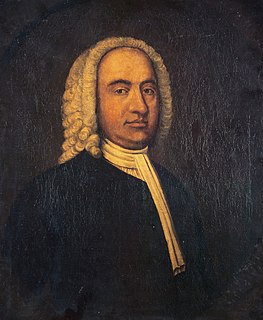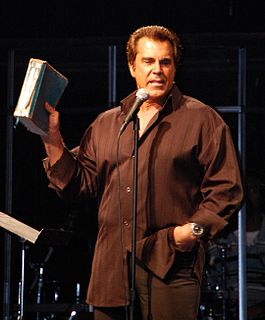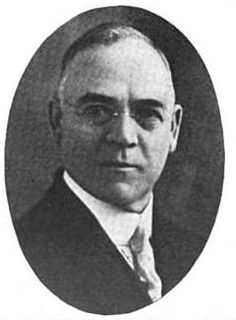A Quote by Benjamin Whichcote
God imposeth no Law of Righteousness upon us which He doth not observe Himself.
Related Quotes
He that doth righteousness; that is, righteousness which the gospel calleth so, is righteous; that is, precedent to, or before he doth that righteousness. For he doth not say, he shall make his person righteous by acts of righteousness that he shall do; for then an evil tree may bear good fruit, yea, and make itself good by doing so; but he saith, He that doth righteousness is righteous; as he saith, He that doth righteousness is born of him.
Yet, after all, faith is not our righteousness. It is accounted to us in order to righteousness (Rom 4:5, GREEK), but not as righteousness; for in that case it would be a work like any other doing of man, and as such would be incompatible with the righteousness of the Son of God; the righteousness which is by faith. Faith connects us with the righteousness, and is therefore totally distinct from it. To confound the one with the other is to subvert the whole gospel of the grace of God. Our act of faith must ever be a separate thing from that which we believe.
The law of giving and receiving is fundamental, and relates just as much to God as it does to us. As we go through the door of giving ourselves to God in worship we find that God comes through that same door and gives Himself to us. God's insistence that we worship Him is not really a demand at all but an offer-an offer to share Himself with us. When God asks us to worship Him, He is asking us to fulfill the deepest longing in Himself, which is His passionate desire to give Himself to us. It is what Martin Luther called "the joyful exchange."
Only when we see that the way of God's law is absolutely inflexible will we see that God's grace is absolutely indispensable. A high view of the law reminds us that God accepts us on the basis of Christ's perfection, not our progress. Grace, properly understood, is the movement of a holy God toward an unholy people. He doesn't cheapen the law or ease its requirements. He fulfills them in his Son, who then gives his righteousness to us. That's the gospel. Pure and simple.
This is that mystery which is rich in divine grace unto sinners: wherein by a wonderful exchange, our sins are no longer ours but Christ's; and the righteousness of Christ is not Christ's but ours. He has emptied himself of his righteousness that he might clothe us in it, and fill us with it: and he has taken our evils upon himself that he might deliver us from them.
It is our duty to endeavor always to promote the general good; to do to all as we would be willing to be done by were we in their circumstances; to do justly, to love mercy, and to walk humbly before God. These are some of the laws of nature which every man in the world is bound to observe, and which whoever violates exposes himself to the resentment of mankind, the lashes of his own conscience, and the judgment of Heaven. This plainly shows that the highest state of liberty subjects us to the law of nature and the government of God.
I think, that a man never passes the verge of moral humility, till self-righteousness be dethroned, till the high and towering imaginations of the man's own righteousness by the law be levelled by the mighty weapons of the gospel, and he brought to submit to the righteousness of God for justification, which is, in the gospel revealed 'from faith to faith.'
God's righteousness and His unchangeable law make Christianity a stumbling block for many. Organizations and individuals carry a political and moral agenda that aims to remove all obstacles to their sin. Their goal is to 'break God's bands asunder and cast away His cords.' They counsel together to rid themselves of the law of God; anyone who preaches the gospel or stands for righteousness stands in the way of their agenda.
We are His children in Very deed, having been born of Him in the spirit, and we have inherited the very attributes which he possesses. They are in us, and they make us God's embryo, We believe that as we are now God once was, and by the practice of virtue and righteousness, by obedience unto law and authority, He has become what He is, and as He is, man may become, on the same principle.








































